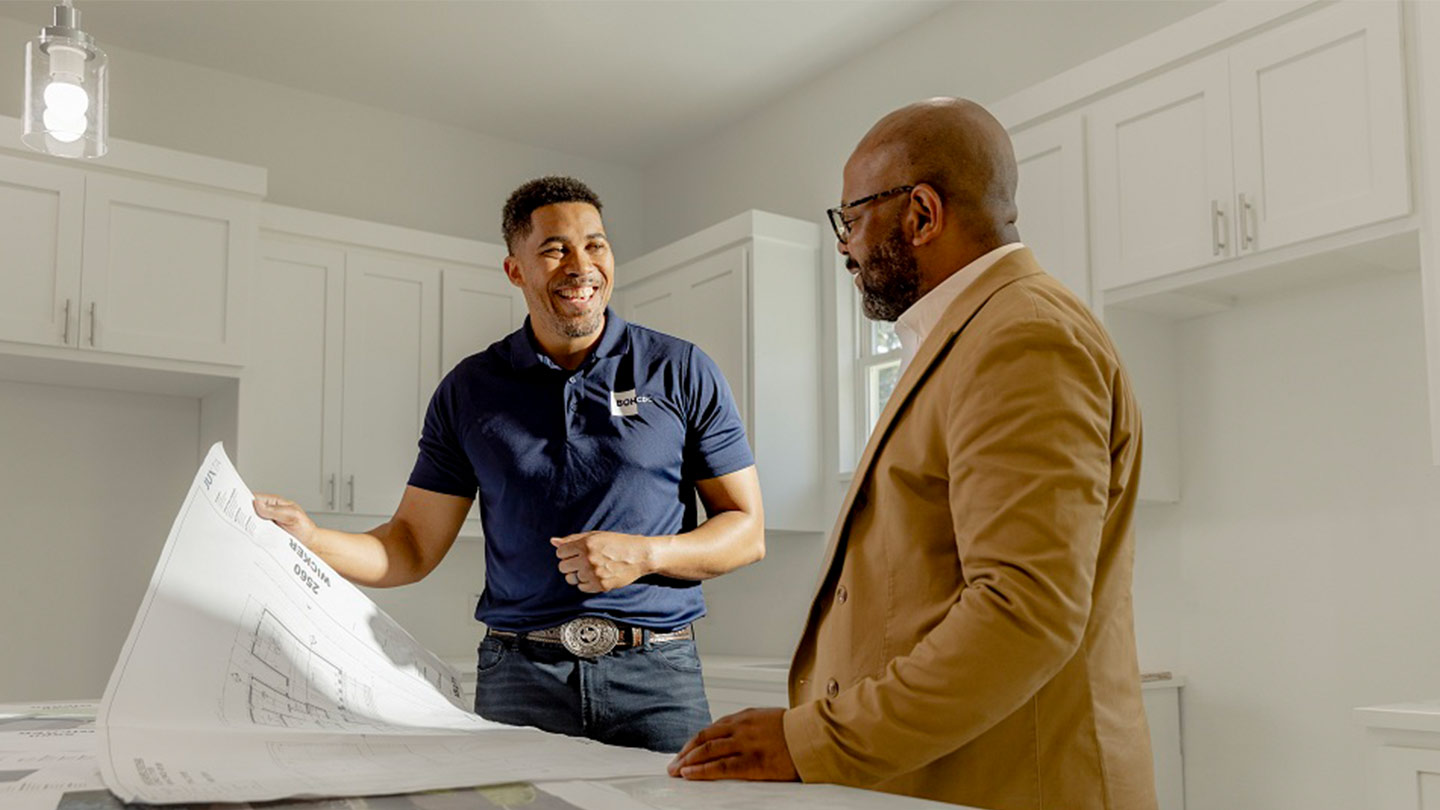In his search for affordable rent, Benny Gibson, a senior citizen and Vietnam veteran, visited 16 different apartment buildings in the Dallas-Fort Worth area. Not a single one would accept his veteran’s voucher from the U.S. Department of Housing and Urban Development.
“Getting turned down is so depressing,” he says.
On a fixed income and in an increasingly expensive city, he found that his needs—not just affordable rent, but also nearby grocery shopping and access to public transportation—had essentially become luxuries.
An affordable-housing crisis in Dallas-Fort Worth
Between 2019 and 2023, median home prices in Texas rose by about 40 percent, and in 2024, 71 percent of Texans couldn’t afford the median rent. Even as the city blossoms as a hub for industry and highly skilled workers, rising rent prices and housing shortages are threatening to displace working-class and lower-income residents from their communities. Estimates predict that in order to keep pace with demand, DFW requires about 100,000 affordable units .
This affordable-housing crisis disproportionately affects senior citizens, as well as single parents and members of underserved populations.
Builders of hope: Reimagining development
As a local employer and member of the DFW community for more than 150 years, JPMorganChase has responded to this crisis by investing in thoughtful community development, financing innovative programs, and supporting community-based organizations. As Dallas booms, it’s critical to strengthen the city’s distinctive neighborhoods and empower long-time residents to remain in the communities they’ve helped to build.
“We want to make sure that underserved lower middle-income communities participate in the growth that we’ve been seeing in the southern part of Dallas,” says Michelle Thomas, Regional Executive for Global Philanthropy at JPMorganChase.
Since 2022, JPMorganChase has provided $500,000 in support to Builders of Hope (BOH) Community Development Corporation. BOH approaches community development by developing affordable housing and improving public safety, advancing public policy, and providing seniors with money to repair their homes—all while offering residents support with economic mobility through education, budgeting, and counseling. Since its inception, the organization has constructed more than 500 units of housing—creating over $30 million in wealth for Texas families.
“Housing itself is not adequate to address the overall need of a community with generational poverty,” says Christopher Lewis, Interim President & CEO of BOH. “You’ve got to address the systems along with providing the services.” By investing in BOH, JPMorganChase seeks to make homeownership accessible to all, supporting tools and resources like the organization’s Anti-Displacement Toolkit.
The product of two years of research and community engagement, the toolkit maps the Dallas neighborhoods most vulnerable to displacement, offers case studies of how specific local neighborhoods are responding to displacement pressures, and provides data-driven policy recommendations to mitigate displacement. “The idea,” says Lewis, “is how do we create a model that reimagines what development is?”
The Riverside Baptist Church is reborn
JPMorganChase is also bringing the full force of our resources to build units of affordable housing across north Texas. Recently, we provided a construction loan to help clients O-SDA Industries and Saigebrook Development reimagine Fort Worth’s historic Riverside Baptist Church as affordable housing.
Dating to 1924, Riverside Baptist Church had boasted a congregation of almost 2,500 at midcentury. But amid its rapidly changing neighborhood, it held its final service on Christmas Eve 2018.
“This was an area where a lot of new apartments were being built, all market rate,” notes Megan Lasch, owner of O-SDA Industries. “There was very little affordability.”
Developers prepared to demolish the structure and replace it with apartments that would make housing in the neighborhood even more expensive. The building that had brought the community together for a century now threatened to break it apart.
Lasch says that the neighborhood was “very forward-thinking” in understanding that the structure, in order to be preserved, would need to serve a new purpose. With the help of a $17.5 million construction loan and a $3.5 million permanent loan commitment provided by JPMorganChase, an innovative conversion project began.
Today, the former church—renamed Cielo Place Apartments—is home to 91 households, 80 of them earning 30-60 percent of Area Median Income (AMI). All of the new apartments were leased in less than 60 days.
Cielo Place Apartments accepted Benny Gibson’s HUD voucher. He put down a deposit and moved in the very next day. “Affordable housing is everything,” he says. “It has given me peace of mind and lifted my spirit. I'll probably live here the rest of my life.” It’s a vibrant mixed-income community, he says; everybody knows everybody.
There’s a park down the street and public transportation nearby. The building’s amenities include a fitness center, a cyber lounge, and a children’s playground. And it continues to serve the community and honor the building’s history: The entire neighborhood has the use of a space inside containing some of the church’s original pews, its altar, and one of its stained-glass windows. “I can just walk inside, and it relieves all my stress,” says Gibson.
Affordable housing helps cities thrive by creating healthy, diverse communities. JPMorganChase’s partnerships with Dallas-Fort Worth organizations are helping to strengthen historic neighborhoods—and building places where their residents can prosper.
Learn more about how JPMorganChase powers economic growth in Dallas-Fort Worth at https://www.jpmorganchase.com/communities/dallas.




